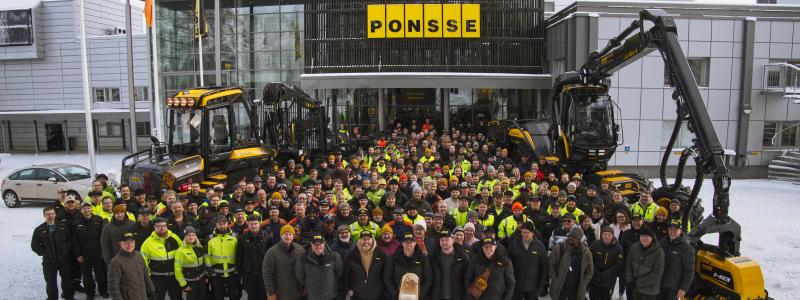FSC certification in Bosnia and Herzegovina started in 2006 as a pilot project, but today it has transformed the forestry sector. Marija Dilber witnessed those changes firsthand.
Marija Dilber is Head of the Coordination Team for Forest Management Supervision and Monitoring at a state-owned enterprise that manages public forests in Kupres county (ŠGD "Hercegbosanske šume" d.o.o. Kupres). She started supporting FSC certification within the company in 2011 and saw forestry management’s evolution into a national commitment as transparency, safety, international recognition and national uniformity were introduced into a forestry sector marked by local fragmentation and ambiguous perception.
Bosnia and Herzegovina started on the path towards FSC certification as a pilot initiative in 2006, supported by the Lombardy region of Italy, the Faculties of Forestry of the Universities of Sarajevo and Padua, and two key figures: Marko Mršo, who led the certification of Kupres Department Forestry in 2006, and Mirjana Vila, who led the FSC certification of the entire company in 2011.
Today, ŠGD "Hercegbosanske šume" operates in full compliance with FSC principles, and Marija is proud of the concrete benefits and positive impacts this has brought to the country and the local community. These include increased formal employment among contractors, strict enforcement of the use of protective equipment, and stronger community engagement. Illegal work has dropped among contractors, improving their access to welfare services, such as pensions. Before FSC certification, contractors and workers alike often overlooked safety standards.
As Marija recalls, “At first, no one used equipment protection. A senior worker got surprisingly angry when protective gear became mandatory in the preparation process for FSC certification. However, he has had no choice but to accept wearing a helmet to continue working. It’s about their safety, even if getting used to new rules always requires effort. We also experienced a few cases of resistance from contractors.”
As well as working conditions, FSC certification improved transparency and stakeholder participation. “Informing the local population about upcoming forest operations is now mandatory,” Marija explains, “and we fully support the legal and customary rights of local communities.”
Marija points out that the relevance of FSC is growing across the country.
“Each year, more of our contractors require FSC certification. It's essential for accessing international markets, and it proves that companies care about forest resources as much as their clients do.”
She expects the demand will continue to rise, as FSC certificate requests from state forests have been increasing over the past 20 years.
Among her current priorities, Marija is preparing for the annual inspection and update of forest areas of High Conservation Value. She also participated in the FSC regional workshop in Sarajevo in June 2025. “It was an opportunity to exchange knowledge with other certificate holders,” she says, “and to keep growing.”
For Marija, that growth is both technical and personal. She is a professional woman with long experience in the forest sector, a field dominated by men. To young women considering a career in forestry, her advice is to speak up and try to break those invisible structural barriers. “Be open-minded and just go for it. Forestry is beautiful.”
She illustrates her approach with an empowering anecdote.
“A few years ago, in 2023, I noticed that my male colleagues organized a get-together in nature, while female colleagues stayed in the office. I asked them why we weren’t hanging out with the men in nature, and they seemed to think it wasn’t for them. So I decided to ask our male colleagues why they didn’t invite women. They assumed we were not interested. After that constructive conversation, they started inviting us too, and since then we have all hung out together.”
This determination reflects Marija’s approach to her work in forestry. “Every year there’s a new challenge. This is what I appreciate most about this job.” And the biggest challenges that forests in Bosnia and Herzegovina face today are climate change, illegal logging and areas where it is dangerous to work because even 30 years after the Bosnian War, there are still many unexploded mines.
Change will be difficult because the legal basis for forestry is fractured. “The country lacks a unified legal framework for forestry. There are 3 federal units and 10 counties in Bosnia and Herzegovina, with 12 different laws on forests,” she explains.
But Marija Dilber is optimistic. “FSC is globally recognized. There’s no doubt it will continue to grow in importance in our region.”
Looking to the future, she doesn’t hesitate: “I dream of a region where forests remain natural and cleared of mines, and every harvest is guided by conscious planning, because the future of healthy forests begins with their management.”
Source: fsc.org





























































